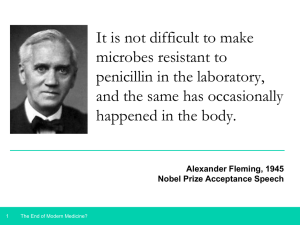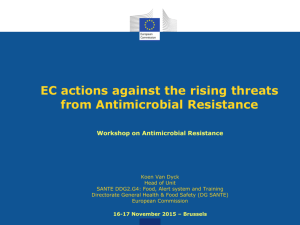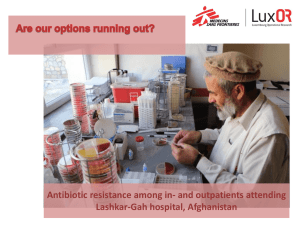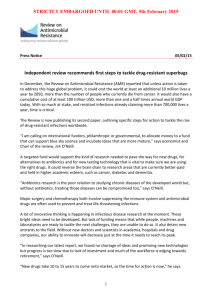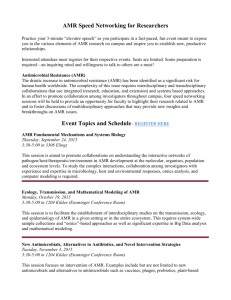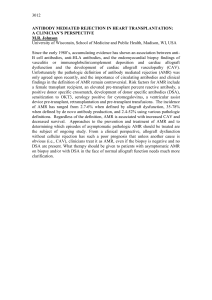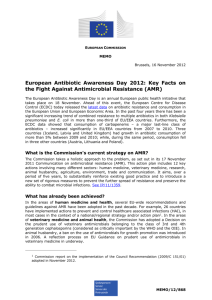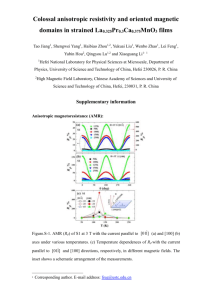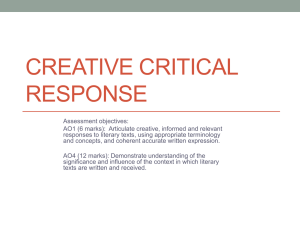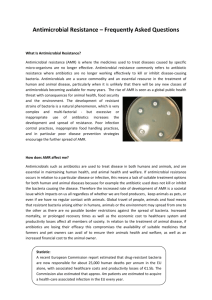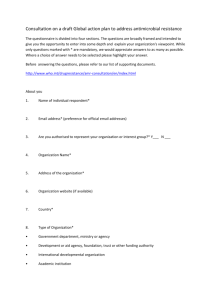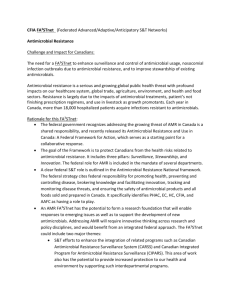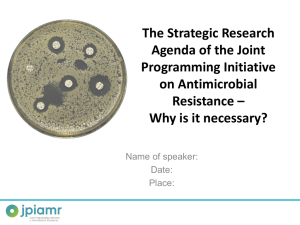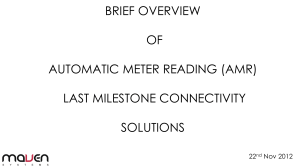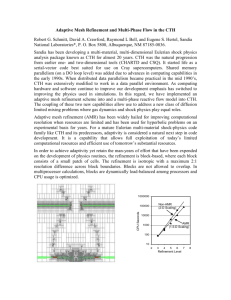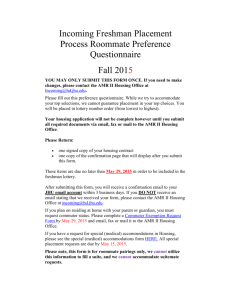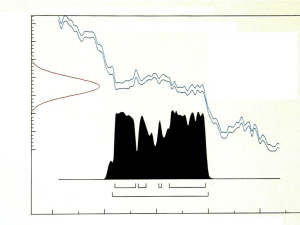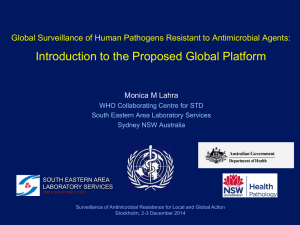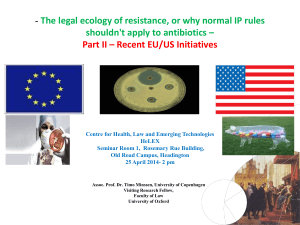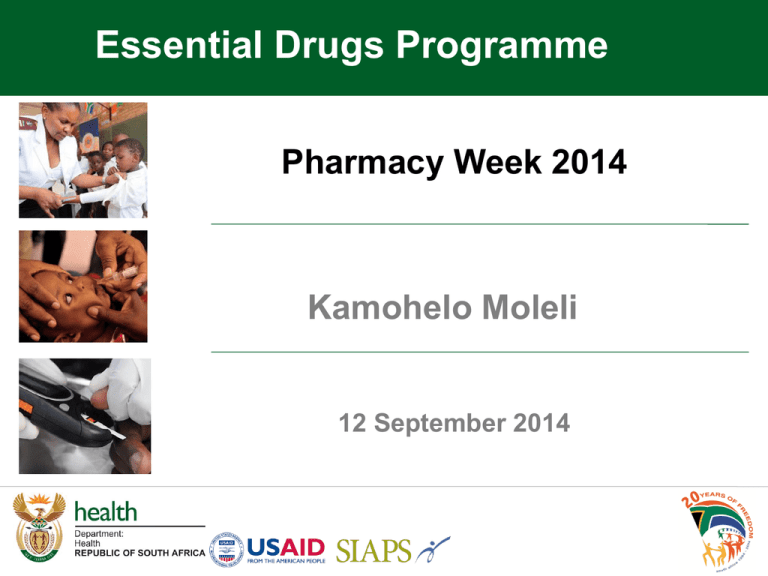
Essential Drugs Programme
Pharmacy Week 2014
Kamohelo Moleli
12 September 2014
Various objectives toward same goal
To raise awareness on the profession
To create interest in the profession among the youth
To strengthen the relationship patient-pharmacist
To highlight the wide range of responsibilities within
the profession
To reinforce the best practices from patients as well as
service providers
For all to remember that pharmacists are not only
dispensing medicines, they are providing a service
To promote Quality Pharmaceutical Service
Quality Pharmaceutical Service in essence
means that:
The medicine the patient needs is available at all times
That the patient receives the best choice of medicine
for his/her condition
Care is taken that the medicine does not harm the
patient
Information about the medicine is readily available to
the patient
The patient has the opportunity to talk about his/her
medicine, ask the relevant questions, and is assured
that his/her privacy is protected
Patients can give feedback about their experience in
the pharmacy
A team work, at national level...
1. A theme for the year:
The theme “Towards Quality Care Together” is
reinforced in 2014 Pharmacy Week with a concerted
sub-theme focus that Antibiotics should be used
wisely
2. Campaign aids
• designed,
• developed,
• distributed to private and public pharmacies across
the country,
• and used by pharmacy personnel during Pharmacy
week during their daily interactions with patients
A team work, at facility level...
Community members in Mabopane,
Gauteng were able to ask questions
and gain more information on their
health concerns
Patients presenting at the
Kimberly Hospital Complex in
the Northern Cape received
health checks such as blood
pressure, cholesterol and
glucose
Antimicrobial resistance (AMR)
•
•
•
•
Major threat to the public health
Serious and growing global health risk
Direct threat to patient safety
Need to preserve antibiotics for future generation
The development and implementation of a national
AMR strategy that complements international efforts
is a major step towards containment of this growing
threat.
Progress report
• April 2014: Stakeholder Consultative meeting for
development of the National AMR Strategy
Framework document 2014 – 2024
• May 2014: Presented at World Health Assembly
(WHA) by Minister of Health (MOH)
• June 2014: Circulated for comment to attendees of
the consultative meeting
• 16 October 2014: AMR Summit in Gauteng
AMR Summit- Purpose
• The purpose of the Summit is to bring together all
stakeholders involved in work related to infectious
diseases to advise on the organisational implications
of the implementation of the Antimicrobial
Resistance National Strategy Framework for South
Africa
AMR Summit- Background
• November 2014: WHO will convene a meeting of
Member States, MOHs and other senior officials and
experts in the field of responsible use of
antimicrobials in Norway
To agree and commit to national objectives, strategies and
effective interventions/actions that will help tackle AMR in
their respective countries
To contribute to the international AMR agenda and inform
the development of the AMR Global Action Plan
• AMR Global Action Plan will be presented at WHA in
Geneva in January 2015
AMR Summit- Objectives
• Develop a comprehensive understanding of the
Antimicrobial Resistance National Strategy
Framework
• Identify and agree upon feasible objectives and
strategies to achieve responsible use of
antimicrobials and to monitor trends
AMR Summit- Objectives
• Obtain high level commitment from key
stakeholders for investing relevant resources and
implementing sound strategies and interventions to
manage antimicrobial resistance, to limit further
increases in resistant microbial infections, and
improve patient outcomes
• Agree on intersectoral collaboration activities
o
o
Public and private sector
Science & Technology, Agriculture, Education etc.
South African AMR Strategy
Pharmacy
Week
15
Antibiotic resistance
• Drivers
o Overuse of antibiotics
o Reliance on broad spectrum antibiotics
o Acquisition of hospital-acquired infection
• Interventions
o AMR surveillance and reporting
o Infection prevention and control
o Appropriate use of antibiotics
Appropriate use of antibiotics
• Optimising the use of antibiotics that are
required
• Reducing prescription of unnecessary
antibiotics
USE ANTIBIOTICS WISELY
Pharmacy Week 2014 campaign
• Theme: Use antibiotics wisely
• Communication support: Posters and Flyers in
9 official South African languages
Pharmacy Week 2014
19
If the pharmacist and his/her patient work together,
they can achieve the optimum pharmaceutical care
results!

